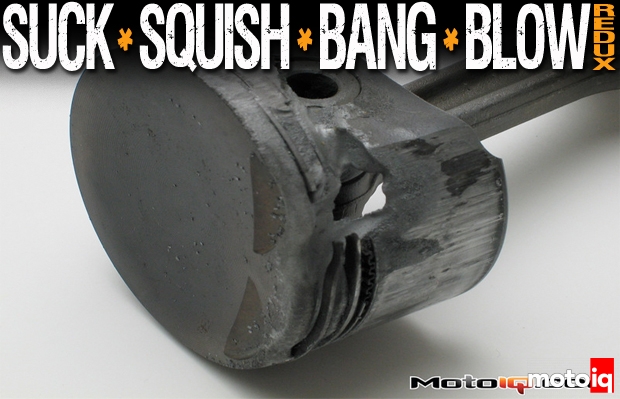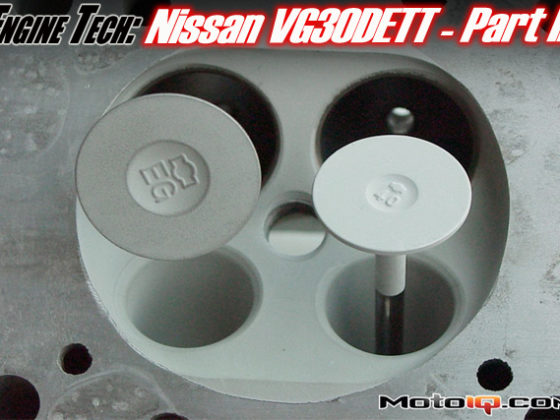,
2. Do not overheat your engine.
If the engine gets too hot you can warp the head and block, blow the head gasket and do even worse damage such as burn valves and pistons. Perform maintenance to your cooling system at your manufacturer’s suggested intervals and periodically check your coolant level. Do not open your radiator cap if the engine is hot. You can be badly scalded if boiling hot coolant is released. If your car overheats (usually indicated by a warning light or temperature gauge) or boils over, pull over, stop the motor and do not run the car until the root cause of the overheating is fixed.
 |
| Well ok, most people don’t realize by the time many modern all aluminum engines get to this point, they are toast, at least for high performance use. Even if the warped surfaces are remachined, bores are corrected and block align honed, the aluminum is softened and will quickly warp again, more easily this time. All the more reasons to fix overheating issues right away. |
Always run a 50/50 mixture of coolant to water. Running the proper ratio of coolant is critical in street cars. Even in climates where the temperature never drops below freezing, coolant protects an engine by reducing deterioration of the water pump and hoses as it reduces corrosion in the engine’s cooling system. Galvanic corrosion is always an issue in engines, particularly in cars with aluminum heads and iron blocks.
More coolant does not make your car cooler. It can actually make your car run hotter. If you want to make your car run cooler, you can use a surfactant like Redline Water Wetter to lower your cars temperature up to 15 degrees. Check and replace your coolant lines and water pump belts periodically. Coolant is not allowed in race cars but please use an additive like water wetter to keep galvanic corrosion under control and to lubricate your water pump.
 |
| A blown head gasket is usually the first bit of serious damage an overheating engine will incur. You can see the fire ring of the gasket is broken here. If the car is continued to be driven in this state the block and block deck surfaces will become eroded and fissured causing severe, sometimes unrepairable damage. |
If your car is chronically overheating, stop and fix the problem, don’t try to nurse it along, heads and blocks can get crevice damage or worse if a blown headgasket is nursed too long. Coolant can find its way to the crankcase and damage the rest of the engine. Long term exposure to coolant in the combustion chamber can cause corrosion and pitting of the bores and chamber.
For track driven cars, pay attention to your temperature as most stock cars overheat when driven on the track under hot conditions. Many cars require higher capacity radiators for track use. Most all aluminum motors are extremely damaged by overheating so care must be taken, when an aluminum motor is overheated, it usually has to be scrapped.


